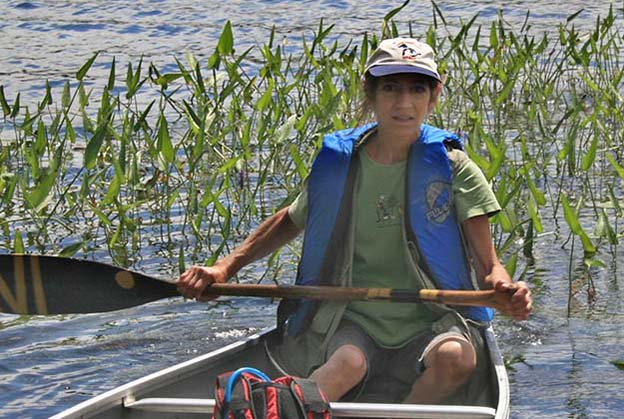McMaster water expert joins league of leaders as Great Lakes Guardian

If you were tasked with inspiring Ontarians to see themselves as guardians of globally magnificent bodies of water, such as the Great Lakes, where would you start? For Gail Krantzberg, it takes more than facts. Even when it’s a staggering statistic such as 40 million people get their drinking water from the Great Lakes, the largest fresh water surface on the planet. Krantzberg says you need to ignite the passion of the people who live along the shores of four of the five Great Lakes through arts, music, and cultural events that will shape the future of what the Great Lakes could and should mean to Ontario.
“It’s majestic and awe-inspiring when you see this place where we live; the Great Lakes are like a chain of jewels that can be seen orbiting our planet from outer space,” says Krantzberg, a professor with McMaster’s W Booth School of Engineering Practice. “You wake up to the beauty and power of it all!”
On Tuesday, March 22, in honour of World Water Day 2016, the inaugural meeting of the newly created Great Lakes Guardians’ Council will meet in Toronto and Krantzberg has been asked by Environment and Climate Change Minister Glen Murray to be there.
As one of North America’s foremost experts on the Great Lakes ecosystem and sustainability, Krantzberg has more than three decades of experience in environmental science and freshwater management. Her extensive list of appointments and achievements surrounding Great Lakes governance is impressive; her background with the Ministry of the Environment and the Great Lakes Regional Office of the International Joint Commission have positioned Krantzberg as a core contributor to the protection of the Great Lakes and St. Lawrence River basin.
“It is a real honour to be invited to the Council,” Krantzberg says of the council “It is really exciting to be at a table where Great Lakes ministers, First Nations and Métis representatives, as well as municipal politicians, will not only look at the challenges and concerns, but at how to prioritize opportunities for action and inspire people to see themselves as fundamentally connected to this ecosystem.”
Other invited Council partners include representatives of the farming community, conservation authorities, industry, environmental groups, the recreation and tourism sectors and the science community.
Established by the Great Lakes Protection Act 2015, the Great Lakes Guardians’ Council is a forum to improve collaboration and coordination among Ontario’s Great Lakes partners. Murray is convening this task-force style group of technical experts to address critical problems and to envision the future of the Great Lakes. He is leading the discussion on identifying priority areas that need action and finding funding sources for the projects.
Krantzberg admits the common approach for environmental task groups is to say, “We’ve been addressing these problems, but there’s more work to be done.” She suggests, however, we also look at what there is to celebrate.
“Let’s create awareness not so much about the negative environmental issues, but the positive aspects of what the Great Lakes are and that we are part of them. For instance, let’s create more films that take your breath away like the IMAX Mysteries of the Great Lakes.”
It’s time for us to get connected to these majestic waterways that significantly impact our lives a council of guardians is an excellent step toward that.
Find out more about World Water Day 2016 (#WorldWaterDay2016, @UN_Water) at http://www.unwater.org/worldwaterday/about/en/

